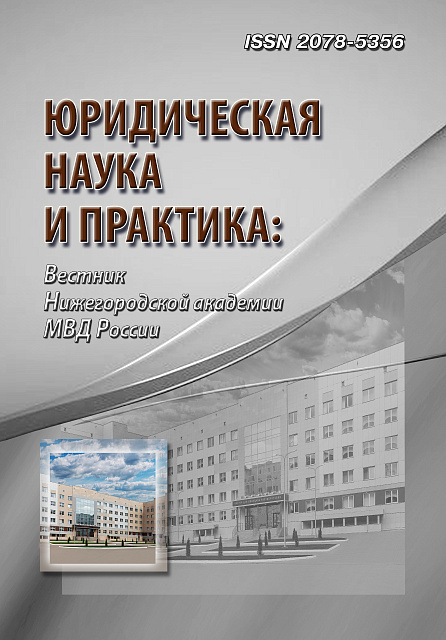The article notes the main points of the biography of one of the key figures of Russian historical and legal science — A. M. F. Reitz, and also analyzes the work he published in 1829, called “An Experience in the History of Russian Law”. The scientist examines the process of formation of state characteristics in the context of the evolution of tribal institutions under the influence of a number of external and internal factors (which are analyzed in this article). In particular, according to the scientist, evolution is determined by demographic processes; the growth of the population united by clan ties within the boundaries of one settlement entails the transformation of the patriarchal power of the tribe leader into the collegial power of clan elders. The scientist also points to acute social contradictions as one of the significant reasons for the emergence of the state. A. M. F. Reitz, developing ideas previously expressed by his predecessors Professors I. G. Neumann and I. F. G. Evers, sees not the individual power of the Grand Duke in the Old Russian state, like European monarchs, but collective suzerainty; questions the established point of view in Russian historiography about the establishment of the power of the eldest in the family in the early period of the existence of the Old Russian state. The scientist considers inheritance and will as the basis for the legitimate transit of power; power is retained within one clan and its transfer is regulated by rules similar to the rules of inheritance law. The scientist defined the Old Russian state by its form of government as an absolute monarchy and, following I. F. G. Evers, defined the Old Russian state by its territorial structure as a union state created through an agreement of princes, and not by a natural unification of territories. Ideas substantiated in the works of A. M. F. Reitz, found a response in the scientific creativity of the works of virtually all historians of Russian law.
old Russian state, historical approach, princely congresses, veche, monarchy, tribal life, customary law
1. Biographical dictionary of professors and teachers of the Imperial Yuryevsky, former Dorpat University for a hundred years of its existence (1802-1902) / ed. by G. V. Levitsky. Yuriev: Printing house of K. Matthiesen, 1902. Vol. I. (In Russ.)
2. Uvarov S. S. Selected works / comp., author. entry articles and commentary V. S. Parsamov, S. V. Udalov; auto lane V. S. Parsamov. Moscow: ROSSPEN Publ., 719 p. (In Russ.)
3. Moroshkin F. L. Scientific works on the history of Russian legislation. Scientific notes of the imp. Moscow, 1835. Part 10. Pp. 145-147. (In Russ.)
4. Reitz A. Experience in the history of Russian state and civil laws / translated and published by F. L. Moroshkin. Moscow: In University Publ., 1836. XXVI. 414 p.
5. Neiman I. G. About the dwellings of the ancient Russians. [letter to G. Evers]. An essay by Mr. N. [Neumann] and a critique of it / trans. from German, preface and critical article by M. P. Pogodin]. Moscow, 1826. (In Russ.)
6. Evers I. F. G. The most ancient Russian law in its historical disclosure / transl. by I. Platonova. St. Petersburg: printed in the Printing House of the Headquarters of the Separate Corps of the Internal Guard, 1835. (In Russ.)
7. Volk-Leonovich S. O. The Old Russian state in the studies of domestic jurists of the second half of the 19th - early 20th centuries. Dissertation... candidate of legal sciences. Omsk, 2021. 238 p. (In Russ.)












